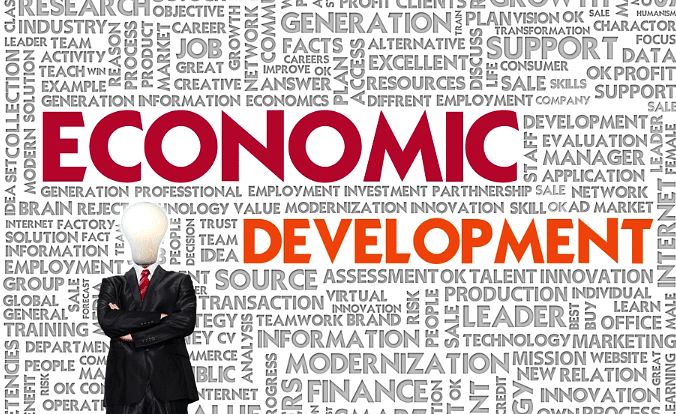UPSC Exam > UPSC Notes > Psychology for UPSC Optional (Notes) > Achievement Motivation and Economic Development
Achievement Motivation and Economic Development | Psychology for UPSC Optional (Notes) PDF Download
| Table of contents |

|
| Introduction |

|
| What is Achievement Motivation? |

|
| The Power of Achievement Motivation |

|
| The Role of Power and Affiliation Motivation |

|
| Economic Development and Achievement Motivation |

|
Introduction
Finding individuals with the right skills and mindset to identify and seize business opportunities is crucial for fostering economic development. In this regard, understanding the motivational characteristics of entrepreneurs can play a pivotal role. By examining individual traits and motivations, various stakeholders such as schools, career counselors, investors, government agencies, and organizations can effectively identify individuals who are well-suited for entrepreneurial endeavors. While the influence of motivation and personality traits on entrepreneurial activity remains a subject of ongoing inquiry, their potential significance cannot be understated. This article delves into the relationship between achievement motivation, the decision to pursue entrepreneurship, and performance in entrepreneurial roles.
What is Achievement Motivation?
In the 1950s, the concept of achievement motivation was developed, emphasizing the need for achievement in individuals. McClelland and his colleagues proposed that individuals with high-need for achievement (NAch) are more inclined to undertake active and creative tasks that involve future planning and personal accountability for outcomes. High-NAch individuals tend to favor tasks that require skill, effort, and offer precise performance feedback. Notably, entrepreneurial roles often encompass these qualities, making them more appealing to individuals high in achievement motivation. Holland's vocation choice model further suggests that people are drawn to occupations that align with their personalities, resulting in better performance and career satisfaction when personality traits and work environments are compatible.

The Power of Achievement Motivation
Individuals with a strong sense of achievement motivation are attracted to tasks that necessitate advanced knowledge and abilities. Their drive stems from a genuine interest in the activity itself and the potential for mastery. Extrinsically, they interpret monetary rewards and public recognition as evidence of their competence and skill. McClelland posited that those with high achievement motivation typically pursue goals of moderate difficulty, as excessively challenging objectives may attribute success to luck, while overly simple goals fail to provide a sense of accomplishment.
The Role of Power and Affiliation Motivation
Apart from achievement motivation, power and affiliation motivations also shape individual behavior. Power motivation is associated with the desire to exert influence, assume leadership roles, and attain a specific social or professional status. Affiliation motivation, on the other hand, reflects a strong emphasis on social connections and interpersonal interactions. Individuals driven by affiliation motivation tend to excel as team players and prioritize pleasant interpersonal relationships in their work environment.
Economic Development and Achievement Motivation
- The Achieving Society, a seminal work in economic psychology, shed light on the relationship between achievement motivation and economic development. McClelland's measurement of achievement need (N achievement) and its connection to economic success garnered considerable attention. However, criticism arose, particularly regarding the simplicity of using a single metric to gauge motivational levels within diverse occupations and social groups. Rubin challenged the validity of such connections, suggesting that economic progress is far more complex than can be attributed to a single personality trait.

- Additionally, discussions surrounding the increase in entrepreneurs within a culture prompted McClelland to argue that individuals high in achievement motivation contribute to economic growth. Nonetheless, Rubin contended that McClelland's ideas were overly universalistic, and the impact of entrepreneurship on economic growth could vary depending on the presence of high-growth potential enterprises. In underdeveloped nations, entrepreneurship might be driven by necessity rather than anticipated opportunities, potentially resulting in limited or adverse effects on economic growth. In contrast, industrialized nations see entrepreneurship thrive in sectors with substantial growth potential, positively influencing economic progress.
Conclusion
Achievement motivation, as proposed by McClelland, highlights that individuals with high levels of achievement motivation are more inclined to engage in active and creative tasks that require future planning and personal accountability. They tend to select tasks that demand skill, effort, provide specific feedback, and present moderate complexity or risk. Simultaneously, entrepreneurship in industrialized nations is primarily fueled by anticipated opportunities in industries with significant growth potential, thereby positively impacting economic development. While these claims are supported by limited empirical evidence, it is clear that understanding achievement motivation and its relationship to economic development can unlock untapped potential and pave the way for prosperous societies.
The document Achievement Motivation and Economic Development | Psychology for UPSC Optional (Notes) is a part of the UPSC Course Psychology for UPSC Optional (Notes).
All you need of UPSC at this link: UPSC
|
160 videos|215 docs
|
Related Searches















